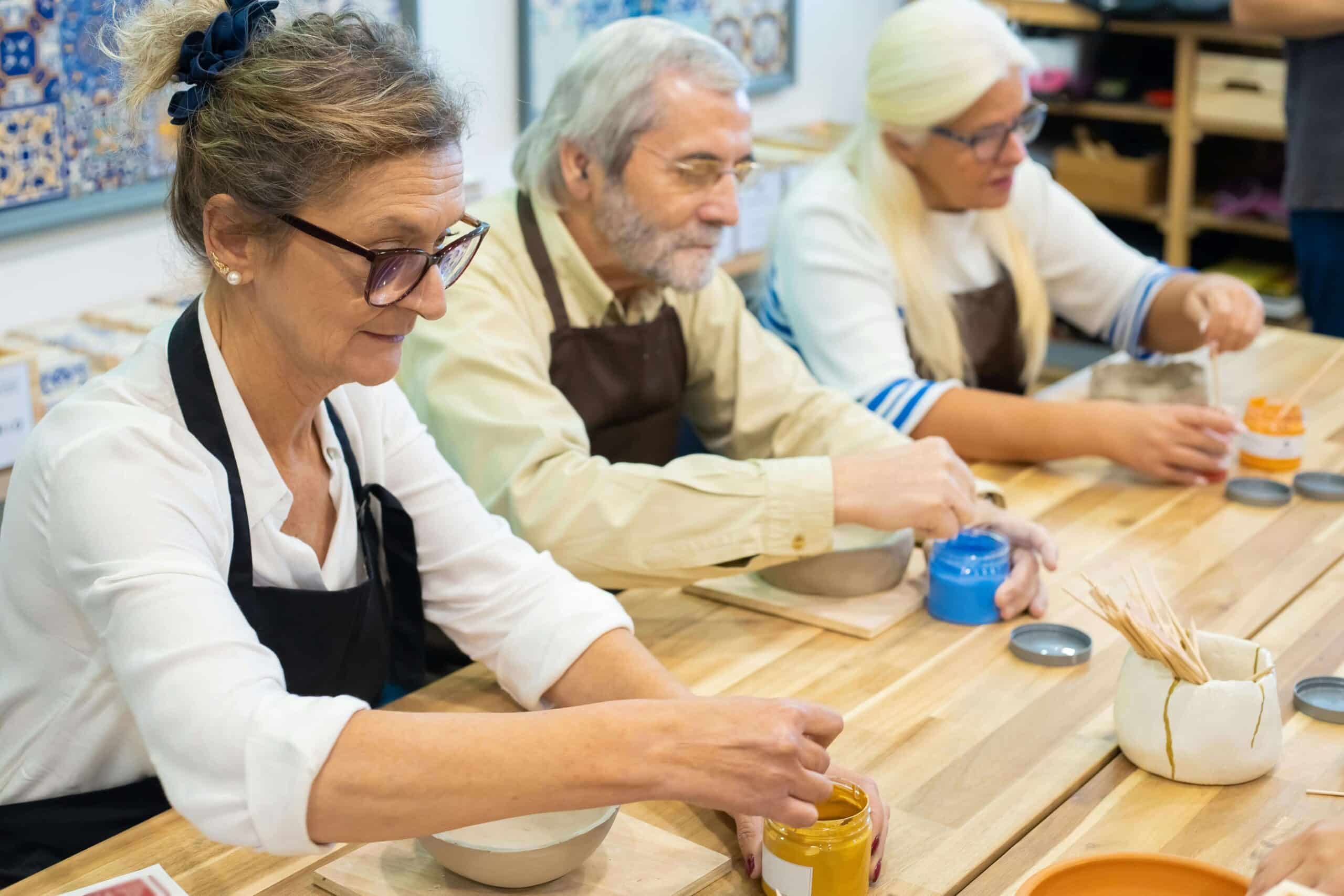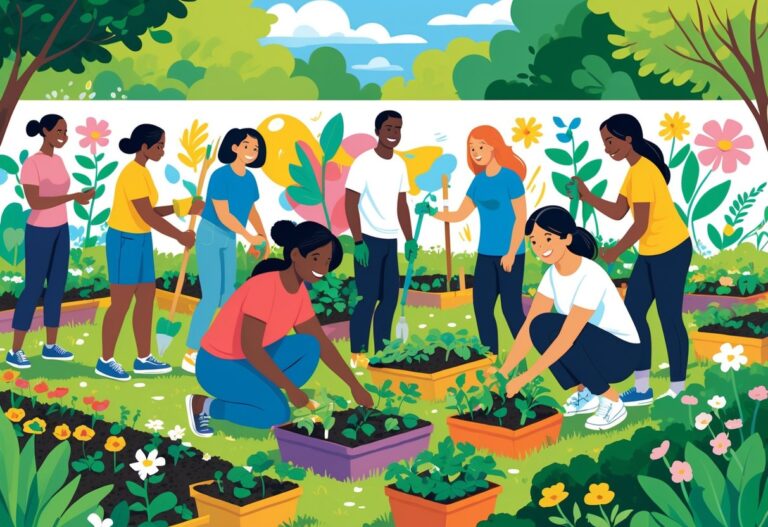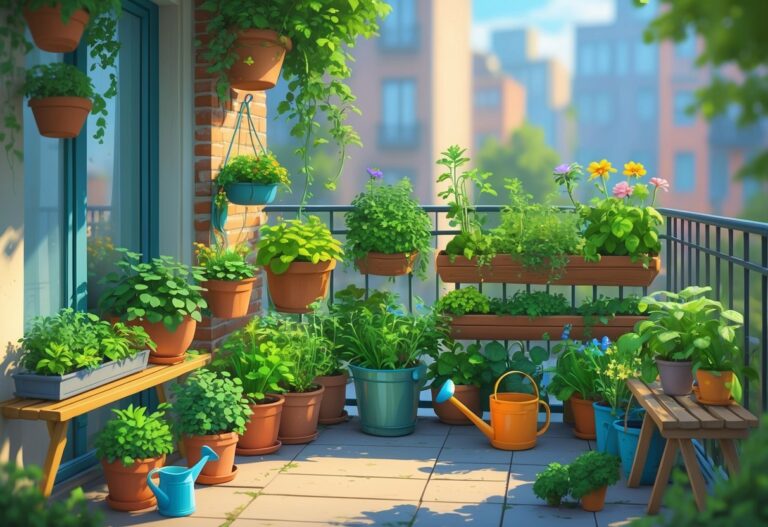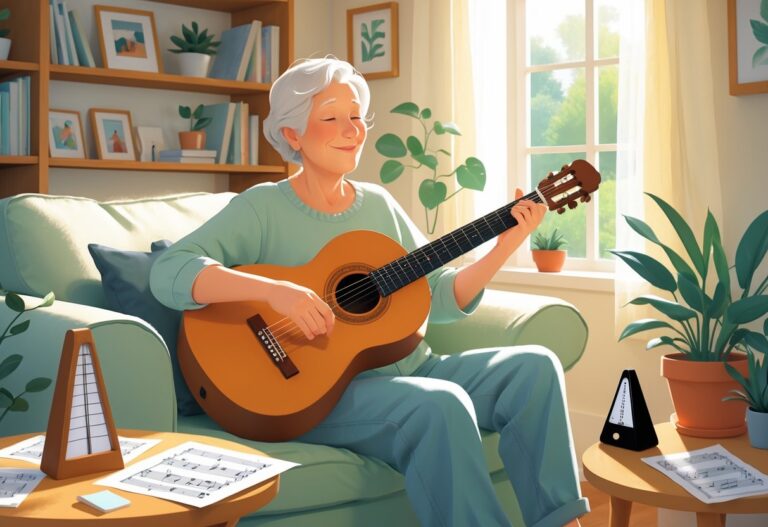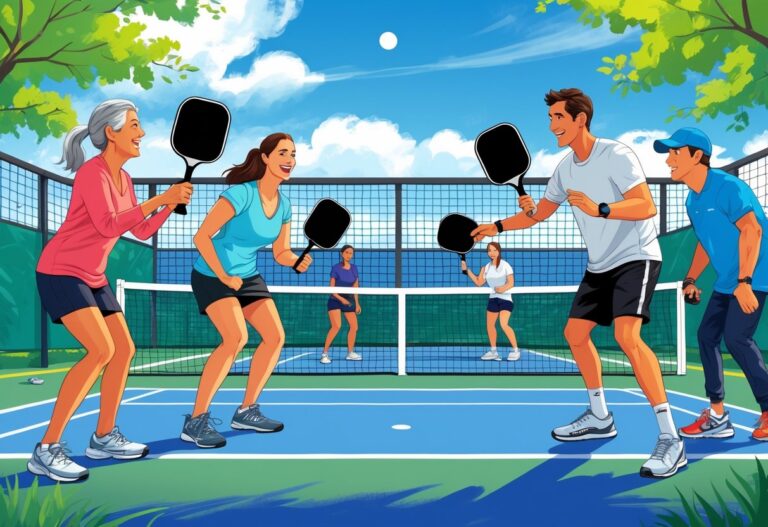Benefits of Hobbies for Seniors
When you dive into hobbies you love, your daily life just feels lighter. Hobbies can lift your mood, keep your body and mind active, and even spark some personal growth along the way.
Activities that capture your interest bring fresh energy and new social connections. They can also give you a deeper sense of purpose—something we all crave, right?
Well-Being and Sense of Purpose
Jumping into hobbies can really boost your overall well-being. When you’ve got something like painting, gardening, or volunteering on your calendar, your day gets a little more structure and a lot more to look forward to.
It’s not just about passing time; these activities give you real goals, even if it’s just finishing a puzzle or nurturing a few plants. Having a sense of purpose can do wonders for your mental health.
If you feel useful and connected, you’re more likely to stay positive and satisfied with life. Group hobbies—think walking clubs or book discussions—are great for building social ties and sharing laughs with others.
Physical Health and Stress Relief
Plenty of hobbies get you moving, and that’s always a win. Dancing, swimming, walking, or yoga all help your heart, balance, and mobility, while even gardening or birdwatching nudges you outdoors for some gentle exercise.
Staying active through hobbies helps lower your risk of chronic conditions like heart disease or diabetes. Plus, exercise releases those endorphins that melt stress away—sometimes you just need to focus on something fun and forget the rest.
Table: Benefits of Physically Active Hobbies
| Activity | Possible Benefits |
|---|---|
| Walking | Heart health, joint mobility |
| Dancing | Balance, endurance |
| Swimming | Joint health, muscle tone |
| Gardening | Movement, outdoor exposure |
Mental Stimulation and Slowing Cognitive Decline
Keeping your mind active matters just as much as moving your body. Hobbies like reading, puzzles, chess, or learning a new language can give your brain a real workout and help keep your memory sharp.
Challenging your mind with new things is linked to a slower rate of cognitive decline. You’ll flex your problem-solving muscles, sharpen your attention, and maybe spark some creativity you didn’t know you had.
Trying out classes, workshops, or just picking up a new skill now and then keeps things interesting. It’s satisfying to learn, and it might even boost your confidence.
Emotional Well-Being and Self-Esteem
Hobbies aren’t just good for your mind and body—they can soothe your emotions, too. Creative outlets like painting, knitting, music, or writing let you express yourself and can really lift your spirits.
Finishing a project, no matter how small, gives you a little boost of pride. Doing things with others, like group hobbies or volunteering, offers social support and a sense of belonging.
When you focus on things you enjoy, you build resilience and handle life’s ups and downs a bit better. Having meaningful activities in your life helps you stay engaged and emotionally steady.
Top Social Hobbies for Seniors
Social hobbies aren’t just about filling time—they help you connect, stay sharp, and feel part of something bigger. Plus, they’re often just plain fun.
Book Clubs and Reading Groups
Book clubs are a great way to mix reading with conversation. You get to share your thoughts, hear new perspectives, and maybe discover a genre you never tried before.
Clubs often rotate hosts or meet at libraries and community centers. With discussion prompts, everyone can chime in, whether you’re into fiction, non-fiction, or something off the beaten path.
Many clubs stick to a regular schedule, which can help you stay connected. There’s usually coffee or snacks, and joining is as simple as signing up at the library or starting your own group.
Benefits:
- Broaden your reading interests
- Improve memory and focus
- Stimulate discussion and critical thinking
Board Games and Card Games
Board and card games never really go out of style. They’re great for keeping your mind sharp and for socializing—plus, who doesn’t love a little friendly competition?
Games like Scrabble, Bridge, Rummikub, and Chess are always popular. Card games such as Pinochle, Gin Rummy, and Solitaire are easy to pick up, and Uno works for any group size.
These games challenge your memory and quick thinking. Many senior centers host regular game nights, so you’ll always have someone to play with.
Popular Games Table:
| Game | Type | Number of Players |
|---|---|---|
| Scrabble | Board Game | 2-4 |
| Bridge | Card Game | 4 |
| Rummikub | Tile Game | 2-4 |
| Chess | Board Game | 2 |
Volunteering and Social Engagement
Volunteering is a fantastic way to give back, meet people, and find new meaning in your days. Seniors often help out at hospitals, libraries, food banks, or schools, and there’s usually a role that fits your interests.
You could help at events, lead activity groups, or even join a committee. Flexibility is key—most places let you pick a schedule that works for you.
It’s not just about helping others—you’ll build new relationships and maybe even pick up a few new skills.
Ways to Volunteer:
- Literacy tutoring
- Community gardens
- Event planning
- Meal delivery programs
Poker Nights and Spectator Sports
Poker nights offer a relaxed, social way to enjoy cards and conversation. The game’s easy to learn, and you can play at home, at a rec center, or in a local tournament if you’re feeling adventurous.
If you’re more into watching than playing, catching local games or watching big matches with friends can be just as social. Some communities even organize outings to sporting events or group TV viewings.
Whether you’re playing or watching, it’s really about sharing the moment. Bring some snacks, maybe pick a theme, and just have fun with it.
Creative Hobbies to Inspire Seniors
Creative hobbies can do wonders for your mind and hands, and they always leave you with something to show for your time. These activities are open to anyone, no matter your skill level, and they’re a great way to express yourself.
Painting and Drawing
Painting and drawing let you get creative and maybe even surprise yourself. You just need a few supplies—watercolors, acrylics, pencils, or markers—to get started, and your experience level doesn’t matter much.
Plenty of community centers and online classes cater to beginners and seniors. If mobility’s an issue, tabletop easels and adaptive tools can help you stay comfortable.
You might paint landscapes, sketch portraits, or try something totally abstract. Working from photos or following YouTube tutorials is a good way to learn, and sharing your art with friends or online can keep you motivated.
Crafting, Knitting, and Crocheting
Crafting covers everything from card making to scrapbooking or building models. Knitting and crocheting are especially popular—they’re easy to pick up and don’t take up much space.
You can create scarves, hats, or blankets, and homemade gifts always mean a lot. Many communities have knitting groups, both in-person and online, so you’ll find plenty of ways to connect and swap ideas.
These hobbies help with finger dexterity and can be a real stress-buster. Starter kits and video guides make it easy to try something new, and you can even donate your creations to hospitals or charities if you want to give back.
Writing, Journaling, and Blogging
Writing takes all sorts of forms—poetry, memoirs, letters, or just a daily journal. Sometimes it’s just nice to get your thoughts out or jot down memories.
Blogging lets you share your stories or interests with the world. Platforms like WordPress or Blogger are free and easy to use, and you can upload photos or chat with readers if you want.
Setting aside time to write builds a nice routine. Journaling can help you organize your thoughts, and if you want more structure, local writing groups or online workshops often have prompts and feedback.
Photography and Digital Art
Photography’s more accessible than ever—your phone or a simple camera is enough to get started. Editing photos with apps can be fun, and digital art programs like Procreate or Adobe Fresco open up new ways to create.
Try snapping photos of nature, family, or just everyday life. Photography clubs can offer feedback and fresh ideas, plus themed challenges to keep things interesting.
Digital art lets you play with color and shape, and you can always tweak your work until you’re happy. If you have vision or mobility concerns, features like zoom and big screens make things easier. Printing your photos or art is a great way to decorate your space or make personalized gifts.
Physical Activities and Outdoor Hobbies
Moving regularly helps you manage weight, protect your joints, and boost your mood. Outdoor activities also keep you social and support your long-term health.
Walking, Hiking, and Cycling
Walking is simple and gentle, but it keeps you flexible and your legs strong. Try a stroll around your neighborhood, a park trail, or even a mall if the weather’s bad—short walks still count.
Hiking adds variety and new scenery. Parks usually have beginner trails, and things like hiking sticks and good shoes help you adapt no matter your fitness level.
Cycling is easy on your joints and builds stamina. Bike paths and senior cycling groups make it accessible, and electric bikes are a real game changer for hills or longer rides.
Table: Physical Benefits by Activity
| Activity | Flexibility | Endurance | Joint Support | Social |
|---|---|---|---|---|
| Walking | Moderate | Moderate | High | Yes |
| Hiking | Moderate | High | High | Yes |
| Cycling | Low | High | High | Yes |
Yoga, Tai Chi, and Meditation
Yoga and tai chi are gentle, low-impact ways to boost balance, flexibility, and muscle tone. Many senior yoga classes use chairs or props so folks can join in comfortably.
Tai chi—think slow, steady movements—helps with stability and can lower your risk of falling. Both practices encourage deep, focused breathing, which is pretty handy for stress management.
Meditation’s flexible too. You can do it solo or with a group, whatever feels right. Research keeps pointing to regular meditation for clearer thinking and even lower blood pressure.
Benefits of Mind-Body Activities:
- Improve posture and core strength
- Enhance concentration and relaxation
- Reduce anxiety and stress levels
Check out your local community center or hop online for classes. Many offer senior-friendly routines and easy modifications for beginners.
Golfing, Tennis, and Pickleball
Golf’s a favorite for lots of seniors—it’s a mix of light movement and catching up with friends. If walking the course sounds like too much, golf carts are always an option. Senior leagues often have shorter courses and more relaxed rules, which makes things more inviting.
Tennis gets your heart rate up and sharpens agility and coordination. Double matches are great if you want less running around. Plenty of clubs reserve courts and offer lessons just for seniors, so you’ll feel right at home.
Pickleball’s taken off lately. The court’s smaller, and the paddle’s lighter, so it’s easier on the joints. Local rec centers usually host meetups, so you get exercise and a chance to meet people.
Relaxing and Intellectual Pastimes
Keeping your mind busy matters—a lot. Quiet hobbies like puzzles, coloring, and learning something new can add a sense of purpose or just help you unwind at the end of the day.
Puzzles, Sudoku, and Crossword Puzzles
Puzzles like sudoku and crosswords wake up your memory and logic skills. Sudoku is all about number patterns, while crosswords challenge your vocabulary and general knowledge.
You can find these games in books, newspapers, or online, so you’re not limited by format. Pick whatever feels most comfortable.
Benefits include:
| Activity | Skills Used | Accessibility |
|---|---|---|
| Sudoku | Logic, Pattern | Print, Digital |
| Crosswords | Vocabulary, Recall | Print, Digital |
| Brain Teasers | Problem-Solving | Books, Apps |
Working on a puzzle for just 10 or 20 minutes a day can give your brain a nice boost. It’s a peaceful way to break up your routine.
Jigsaw Puzzles and Adult Coloring
Jigsaw puzzles are hands-on and test your patience and visual skills. Whether you go for a big 1000-piece puzzle or something smaller, you can pick what fits your mood and space.
Adult coloring books—those with detailed patterns or calming scenes—are surprisingly relaxing. You don’t need any art skills; just grab some colored pencils or markers and go for it. It’s a low-pressure way to be creative.
If your hands get tired or stiff, try puzzles with bigger pieces or coloring tools with thicker grips. You can work on these hobbies alone or invite friends and family to join in.
Learning a New Language and Philosophy
Learning a new language keeps your mind on its toes. Apps, online courses, or local classes all work—just pick what suits you. Studying new words and grammar flexes your memory and problem-solving muscles.
Philosophy might sound intimidating, but it’s really just about exploring big questions. Books, podcasts, or discussion groups can get you thinking about ethics, meaning, and how we see the world. It’s a chance to reflect and maybe debate a little.
You can dive into both from home or with a group. Trying out new languages or exploring philosophy can open up fresh connections and perspectives.
Hobbies for Nature Lovers and Adventurers
Getting outdoors is good for the soul. You can relax, get your hands dirty, or try something new—there’s no shortage of ways to enjoy nature, no matter your experience or ability.
Gardening and Herb Gardening
Gardening blends light movement with a bit of mental challenge. You might plant a veggie patch, arrange flowers, or grow herbs in containers or raised beds. Herbs like basil, thyme, and chives are easy to care for and come in handy in the kitchen.
A tiny herb garden can thrive on a sunny windowsill or balcony.
- Benefits:
- Improves mobility and flexibility
- Offers fresh produce and herbs
- Encourages time spent outdoors
- Tips:
- Use ergonomic tools to reduce strain
- Choose easy-to-grow herbs and vegetables
Many people find gardening calming and mindful, no matter their skill level.
Bird Watching and Stargazing
Bird watching brings you closer to local wildlife. Grab some binoculars or just use your eyes and a guidebook. Keeping a birdwatching journal makes it more fun—you can jot down what you see and when.
Setting up a feeder or bird bath in your yard brings more feathered visitors. Stargazing, on the other hand, is a quiet way to wind down at night. All you really need is a clear sky and a comfy chair, though a telescope or phone app can help you spot planets and constellations.
Try keeping a notebook for your star sightings or use a map to track what you find. Both hobbies slow you down and sharpen your observation skills. They’re easy to share with friends or join through local clubs.
Camping, Boating, and Fishing
Camping at local parks or campgrounds is a great way to get outside. Many places have accessible trails and basic amenities. If you’re into water, boating and fishing are usually gentle on the body—pontoon boats or kayaks work for different comfort levels.
Always bring safety gear and stick to calm, familiar waters. Fishing from a dock or the shore is a relaxing way to spend a few hours. If you want a bit more excitement, look for guided trips like rafting or kayaking with a pro.
Nature photography lets you capture your adventures. Bring your phone or a camera to snap photos of landscapes, wildlife, or those quirky moments you don’t want to forget. These activities help you try new things and stay connected to the outdoors.
Fun Indoor Activities and At-Home Hobbies
Indoor hobbies are a smart way to stay engaged, get creative, and learn at your own pace. You can adapt most activities to fit your interests, abilities, and space.
Cooking, Baking, and Cooking Classes
Cooking and baking at home let you try out new recipes and enjoy healthier meals. Experiment with traditional favorites or branch out with international dishes. Baking bread, cookies, or cakes is fun—and you get to share the results with family or friends.
If you like a little more structure, online or community cooking classes can help you learn new techniques and meal planning. Video lessons are easy to follow right from your kitchen.
Some folks set up virtual cooking meetups to swap recipes and cook together from afar. Keeping a recipe journal is handy for remembering what works and what needs tweaking next time.
Collecting, Scrapbooking, and Pottery
Collecting—whether it’s stamps, coins, or postcards—gives you a reason to hunt for treasures and organize your finds. You can keep track with labels, spreadsheets, or photos. Researching your collection adds an extra layer of interest.
Scrapbooking is a creative way to save memories. Use photos, ticket stubs, and little notes to tell your story. You don’t need fancy supplies; patterned paper, glue, and stickers are enough to start. Scrapbooking kits online make it even easier to begin.
Pottery is doable at home with air-dry clay and simple tools. Making bowls, mugs, or little sculptures helps with hand strength and fine motor skills. There are plenty of online tutorials to walk you through the basics, from shaping to painting.
Music, Playing an Instrument, and Dancing
Learning to play an instrument lights up your brain and, honestly, it’s just fun. You might want to start with something simple—maybe the keyboard, guitar, or even a harmonica.
There are loads of digital courses and apps out there. They break things down step by step, so you can take your time and learn at your own pace.
Trying out new genres of music keeps things fresh. It’s surprising how much your taste can change when you give something different a shot.
If you’re after a bit more movement, dancing indoors is a solid choice. It’s gentle exercise, but it doesn’t really feel like a workout, does it?
Just clear a little space in your living room. Maybe follow along with a dance video or jump into an online class if you’re feeling brave.
You don’t need any experience to get started with music or dance. Both are pretty flexible, so you can just do your own thing and see what fits.
